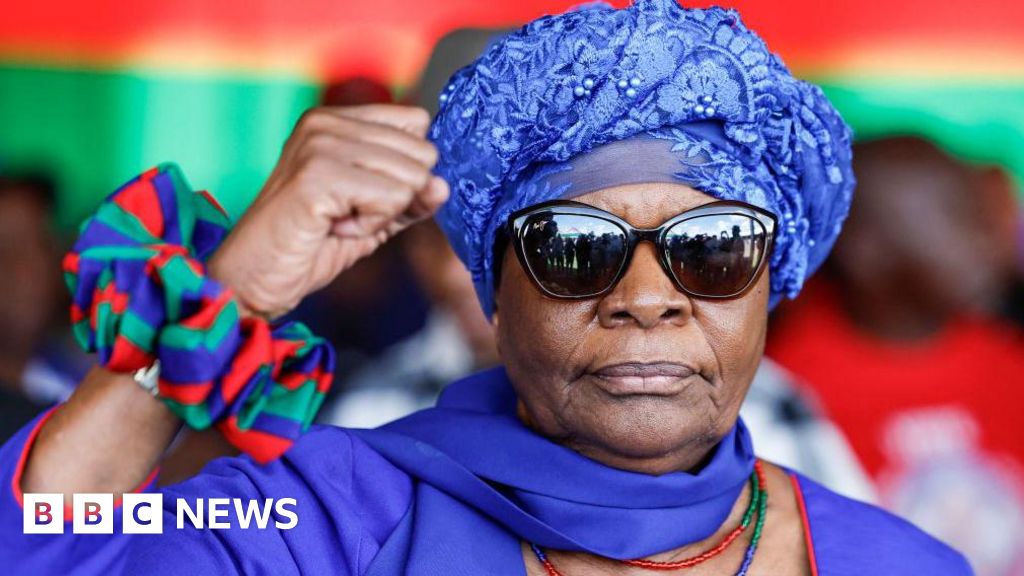• Some affected MDAs get notice of merger, relocation
• Reps invites SGF, HoS to review report plan
• Stakeholders wary of intended gains, political hurdles
The commencement of merger, relocation, and winding up of some Ministries, Departments and Agencies (MDAs), in line with the revised Steve Oronsaye Report, is unsettling many across the federal government bureaucracy.
After the review, as mandated by the President, The Guardian learnt some concerned departments and agencies have been issued official notices, raising the air of apprehension and uncertainty of the fate that awaits concerned workers in MDAs that are pencilled for scrap, relocation or merger.
A credible source yesterday informed that the implementation committee had, as of last week, informed some of the affected MDAs about its decision but some.
With the notices delivered, heads of affected agencies to be scrapped or merged went on intense lobbying of politicians and members of the National Assembly.
Recall that the Federal Government had on March 7 inaugurated the Akume-led committee with a 12-week deadline to submit its report on the planned merger and scrap of some MDAs.
Previous efforts by the administration of former President Goodluck Jonathan to implement the Steve Oronsaye Report ended at the National Assembly even after the administration had issued a White Paper on the Report to prune down bureaucracy in Nigeria.
The Report proposed to merge, scrap and relocate various government agencies as a pragmatic approach to addressing the bloated and ineffective duplicative nature of Nigeria’s bureaucracy and reduce the cost of governance.
The Director of Information in the Office of the Secretary to Government of the Federation (OSGF), Shegun Imohiesen, confirmed that the process of merging the MDAs was underway and would be announced soon but could not give details of the affected offices.
According to the report submitted, some agencies have been merged. Among them is the Federal Radio Corporation of Nigeria which is merged with the Voice of Nigeria, while the National Commission for Museum and Monuments will be merged with the National Gallery of Acts.
The National Theatre will merge with the National Troupe of Nigeria, while the National Meteorological Development Centre will merge with the National Meteorological Training Institute.
The National Agency for Control of HIV/AIDS (NACA) is to be merged with the Centre for Disease Control in the Federal Ministry of Health, while National Emergency Management Agency (NEMA) is to be merged with the National Commission for Refugee Migration and Internally Displaced Persons.
The Directorate of Technical Cooperation in Africa will be merged with the Directorate of Technical Aid to function as a department under the Ministry of Foreign Affairs.
Infrastructure Concession Regulatory Commission is to be merged with the Bureau for Public Enterprises. The Nigerian Investment Promotion Commission will merge with the Nigerian Export Promotion Council, while the National Agency for Science and Technology and Science and Engineering Infrastructure will merge with the National Centre for Agricultural Mechanisation and the Project Development Institute.
Similarly, the Air Force Institute of Technology also will be merged with the Nigerian Defence Academy to function as the faculty of the Nigerian Defence Academy. The Border Communities Development Agency will be subsumed to function as a department under the National Boundary Commission.
The National Salaries Income and Wages Commission is to be subsumed into the Revenue Mobilisation and Fiscal Allocation Commission while the Institute for Peace and Conflict Resolution is to be subsumed under the Institute for International Affairs.
The Public Complaints Commission is to be subsumed under the National Human Rights Commission while the Nigerian Institute for Trypanosomiasis is to be subsumed into the Institute for Veterinary Research.
Among the agencies to be relocated, the Niger Delta Power Holding Company is to be relocated to the Ministry of Power while the National Agricultural Land Development Agency will be relocated to the Federal Ministry of Agriculture and Food Security.
However, while the Akume-led committee was delaying in making public its recommendations, an ad-hoc committee of the House of Representatives on restructuring of government agencies and commissions, yesterday, summoned the SGF to shed light on the veracity behind the decision to implement the Oronsaye Report.
Also to appear before the lawmakers, alongside stakeholders from MDAs and the public, is the Head of Service of the federation, Dr Folasade Yemi Esan, to share their opinions on the issue on July 10.
The Chairman of the committee, Mr Ibrahim Isiaka at a press conference held at the National Assembly complex in Abuja insisted that it is only the National Assembly that is empowered to review, repeal, or legislate on the establishment of MDAs.
Faulting the notions that the National Assembly is being influenced to halt the decision to scrap or merge some agencies of government, he maintained that the exercise being embarked upon is in tandem with the quest to strengthen the functions of the MDAs.
The lawmaker ruled out the possibility of the committee inflicting job losses on workers.
He said: “Any agency of government, ministries, department, or parastatal that is created by an act parliament, no man can add A or remove A, except through the National Assembly. It is either it is going to come through an amendment, repeal, reenactment or enactment.
“So, if that is the standard practice or position of the law, there is no point anybody trying to lobby anyone because whatever we do will still be subjected to the concurrence of the Senate. So, there is no shortcut. There is no point insinuating that anyone would be going behind to lobby anyone,” Isiaka said.
He noted that some agencies were created with certain exigencies of time in the past. Perhaps, some of them have outlived their functions and the national assembly must review them.
“If it is to strengthen them and look for more functions for them, so be it. We are going to ensure that people do not lose their jobs. That will not come up. What we are doing is just to avoid duplication. We need to delineate all these. It is not about driving people out of their jobs. The Head of Service and Secretary to the Government of the Federation are going to be at the public hearing.
“We are not asked to rationalise works in ministries, departments and agencies and that is what we are about to do to the best of our ability.
“It is imperative for us to revisit the recommendations of the Oronsaye Report and other pertinent White Papers to ensure that we are aligning our government structures with current realities, best practices, and the changing needs of our society. The world is evolving rapidly, and our government agencies and commissions must be structured in a way that enables them to deliver on their mandates effectively and efficiently,” Isiaka said.
The Guardian checks revealed that as of 2012 when the Oronsaye Report was released, there were 541 statutory and non-statutory Federal Government MDAs. It however, recommended that 263 of the statutory agencies be slashed to 161; 38 agencies be scrapped; 52 be merged and 14 be reverted to departments in various ministries, among others. However, within 12 years, the MDAs have increased to 1,316.
The immediate past Director General, Budget Office of the Federation, Mr Ben Akabueze, disclosed that there are also 561 federal-owned corporations whose duplicated functions had significantly shot up the cost of governance. He said the multiplicity of ministries and extra-ministerial bodies had become a huge drain on the economy.
If the Oronsaye Report had been implemented about 12 years ago, the government could have saved more than N862 billion between 2012 and 2015.
However, experts said if President Tinubu-led administration properly implemented the Report, it would save the government over N1.5 trillion per year.
Lead Partner, Cardinal Professional Services, Emmanuel Onasanmi, said given the current reality, there is potential for an excess of N1 trillion from the implementation of the Report, and tasked the committee on transparency and accountability.
Akabueze, in August 2023, revealed that the Federal Government’s personnel cost was over N5 trillion, with 1.5 million workers on its payroll.
Out of the N28.7 trillion budgeted for 2024, N8.7 trillion was appropriated for recurrent expenditure.
But Onasanmi noted that even though the need to reduce the cost of governance is sacrosanct, beyond scoring political points with the implementation of the Oronsaye Report, the first thing to identify is that if Nigerians want to get the benefit of the Report, there is no way there won’t be job losses.
He called for a win-win approach, saying, “The objective of the report is to streamline bureaucracy in the civil service and the inefficiency that is inherent in it to cut down drastically the cost of governance. Transparent communication around the implementation is therefore needed and carrying stakeholders along in a manner that leads to a win-win outcome for everybody.”
An expert in Public Administration and World Bank consultant, Prof. Ladipo Adamolekun, said the government must be consistent in its policies and actions to assist the implementation committee in achieving its objective, noting that appointing new executives to the agencies to be scrapped or merged is a wrong signal about the political will of the government to implement Oronsaye Report.
The former university don noted that the three-month deadline for the implementation committee to complete its assignment was too short for the staff audit and other tasks involved in public service reform. He said the committee needed at least six months to do a thorough job.
According to him, “The composition of the implementation committee is rather too weak. Out of ten only the Head of Service, Dr Folashade Yemi-Esan; Director General of the Bureau of Public Service Reform, Dasuki Ibrahim Arabi and the Special Adviser to the President on Policy and Coordination Hadiza Bala Usman are professionals. I am suggesting that they need one or two external experts to join them. From my experience all over the world, the task of public service reform is not easy and many governments that started it barely complete it.
“Also, I expect the committee to have made public the guideline for the implementation of the Oronsaye Report, which must have been with the Bureau of Public Service Reform. However, there are concerns about the inconsistency of the government by the number of political appointees at the state and federal level and what they want to achieve with the implementation of the Oronsaye Report. There will be a reduction in staff to reduce cost in governance but appointment of many commissioners and ministers may erode the gains.”
Also speaking, an economist, Kalu Aja urged President Tinubu to restructure his government to enable him to deliver on his promises, saying, “If the purpose of the government is to grow the economy through agriculture, the government should be adjusted to focus on it, it doesn’t have to be what Orosanye did some years ago, but what the President wants to do going forward to make his span of control tighter and to reduce unnecessary cost.”
He argued that the number of ministers is high, saying there is a lot of waste in government while calling for a deliberate approach on the part of government and the people to ensure a balance.

 4 months ago
34
4 months ago
34














![[ICYMI] No N500m missing from customer’s account, says Access Bank](https://cdn.punchng.com/wp-content/uploads/2018/09/14183604/20180707-DSC_0077new.jpg)
 English (US) ·
English (US) ·